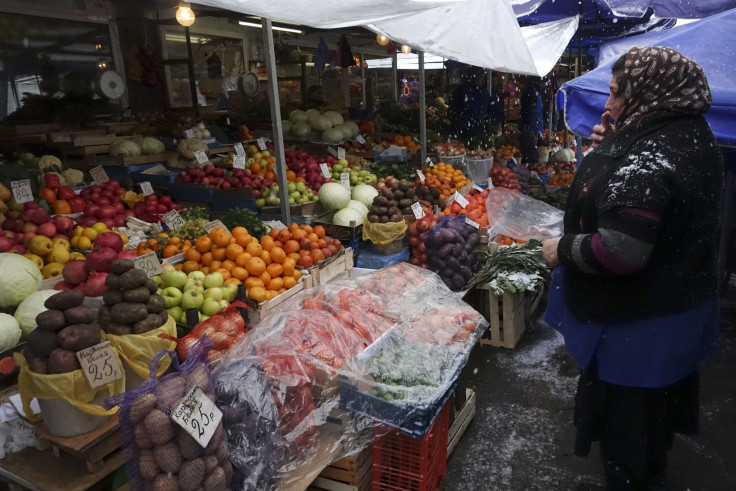Russia-Turkey Relations Update: Ukraine Offers To Step In After Fruit And Vegetable Ban

Russia continued to ratchet up sanctions against Turkey Monday, announcing a ban on the import of Turkish fruits and vegetables, the Wall Street Journal reported. As sharp words are exchanged between the two trading partners, other countries are already looking to step into the new economic void.
“If Turkey's traditional partners impose sanctions, that is, they will suspend to supply their grain, Ukraine is ready to at least double its exports of grain, corn and sunflower oil,” Ukrainian Minister of Agrarian Policy and Food Oleksiy Pavlenko said in a statement posted on social media, local media reported. “Turkey is our long-lasting and reliable partner; we are ready to act as a guarantor of food security for Turkey.”
While it remains unclear whether grain will be added to the list of banned products, the Russian government warned that other sanctions are likely to follow the fruit and vegetable ban. That ban is expected to come into effect in a few weeks, and Russian Prime Minister Dmitry Medvedev said other products, including clothing, could be added to the list.
Russia has become dependent on some food products from Turkey following its boycott of Western foodstuffs in response to sanctions over the conflict in Ukraine. Twenty percent of Russia’s vegetable imports come from Turkey, the Moscow Times reported.
The sanctions against Turkey come after the country last week shot down a Russian airplane that Ankara said entered its airspace. Russia has continued to deny the plane was in Turkish territory and has asked for an apology from the Turkish government. Medvedev said Monday the sanctions were aimed at the Turkish government, and not at Turkish citizens.
A disruption in the Black Sea wheat trade, one of the world’s key routes, could increase market prices, Market Watch reported. If Russia introduces an export ban, Ukraine and other European markets, as well as the U.S., could stand to gain. Turkey was Russia’s No. 1 export market for wheat last year, and the grain sector is one of the key trading areas between Ankara and Moscow. Turkey purchased 4.1 million metric tons of wheat from Russia during the 2014-15 market year, Market Watch reported.
© Copyright IBTimes 2024. All rights reserved.












